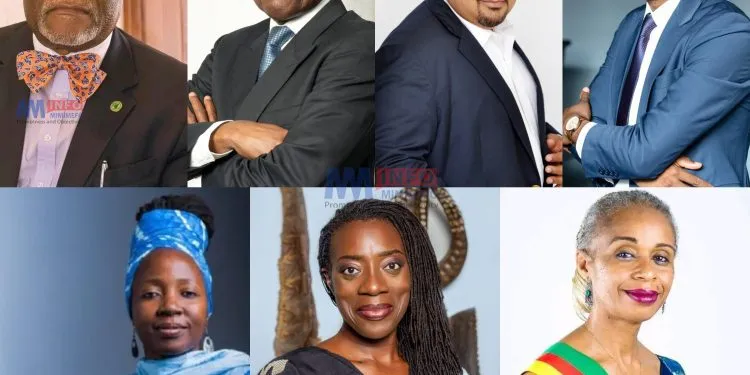By Charles Mambo
As Cameroon approaches yet another presidential election, a sobering truth confronts the nation. It asks, how long can the country remain trapped in a cycle of dysfunction before it collapses under its own weight? Governance in its current form has ceased to be responsive, useful, adaptive, or even minimally functional to the needs of the people.
The Price of Prolonged Misrule
After more than four decades of increasingly centralised and opaque leadership, Cameroon is not simply stagnating—it is in rapid decline. In every index of human development, our ranking is abysmal: deteriorating healthcare, collapsing education, a high unemployment rate, a crime rate at an all-time high, decaying infrastructure with roads serving as death traps, rising insecurity, rampant levels of lawlessness, and a shrinking civic space. Corruption, meanwhile, thrives as the most dependable institution of the state.
A Generation Betrayed
Our youth, who were once the hope of the Republic, are currently unemployed, disillusioned, or engulfed in despair. The disillusionment of Cameroon’s youths—a generation left behind—is perhaps the gravest indictment of our failed governance. The nation is bleeding its youths as they’re fleeing the country. Yet, despite this visible national decay, we continue to inflict upon ourselves the same injurious rituals of a failed democracy—registering, campaigning, and voting—doing the same things and expecting transformation from a system designed to fail.
The time has come to break this moribund cycle and help our failed government.
The Case for a Transitional Government
Cameroon urgently needs a transitional, power-sharing government: a pragmatic coalition built on competence, not patronage—on conscience, not allegiance. Such a government transcends partisan loyalties and ethnic divisions. It draws from civil society, the opposition, the legal profession, technocracy, and even reform-minded figures within the current regime. There is no shortage of capable Cameroonians at home and in the diasporas—only a shortage of political will.
Such a coalition should be composed not of political loyalists. It will consist of individuals with integrity, vision, and a proven track record of service. Cameroon’s bench of qualified and committed citizens is deep: Prime Minister Joseph Dion Ngute, Professor Maurice Kamto, Barrister Akere Muna, Hon. Joshua Osih, Barrister Michèle Ndoki, Dr. Balla Essono Tsimi, Cabal Libii, Kah Walla, Barrister Tambe Tiku (a renowned human rights advocate), Asheri Kilo (a reform-minded government official), Justice Vera Ngassa, and Professor Julius Amin, among others.
Additionally, representatives from traditional councils across all regions of Cameroon must be part of this process to ensure it reflects the country’s socio-cultural diversity and promotes national cohesion. A few figures from the religious community, civil society, and independent technocrats from the diaspora should also be part of this national effort.
Learning from Others
The mandate of such a transitional government would be clear and time-bound: to stabilise the nation, reform its electoral architecture, safeguard civil liberties, guarantee transitional justice, and prepare the ground for free and credible elections. We can even go as far as scrapping the 2025 presidential elections in order to implement this lofty idyll.
Such a plan is not a radical idea—it is a reasoned and proven response to systemic failure. South Africa’s post-apartheid settlement, Tunisia’s transitional consensus after the Arab failure, Ghana after the military rule, Ivory Coast after the civil war – all achieved transformative histories and offer instructive examples for Cameroon to replicate. When institutions cannot reform themselves, an inclusive interim government emerges as a political alternative and a national necessity.
Constitutional Legitimacy vs. Moral Authority
Critics may argue that such a move would violate Cameroon’s Constitution. But what is the value of a constitution that sanctifies an incompetent status quo while suppressing the sovereign will of the people? A constitution that protects impunity rather than justice is not a covenant to be respected but a cage. And cages, when no longer fit for purpose, must be dismantled. A document that no longer reflects the will or welfare of the people is redundant.
Cameroon stands at a decisive, and perilous crossroads. We can either seize this moment and reimagine the republic—or retreat further into the shadows of irrelevance, division, and despair.
This is not a call to revolt but a call to responsibility. Let us not squander another moment in our post-independence journey. This year marks the beginning of a new chapter—one written with determination, not desperation. Our children are watching. And the world is too.
The views expressed in this article are solely those of Tanyi Charles Mambo and do not necessarily reflect the editorial stance of Mimi Mefo Info.



